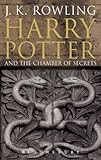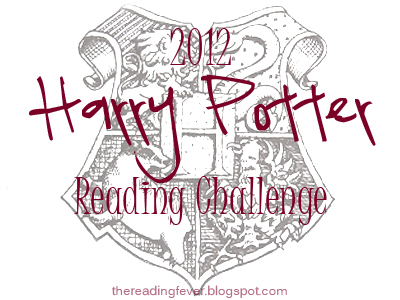 If you have visited recently, you may recall I’m rereading the Harry Potter series on e-book after receiving the wonderful digital gift of the entire series, British versions. Harry Potter and the Chamber of Secrets does not have as many differences from the American version. Once again, upon reading it, I was struck with how much of the foundation for the rest of the series is laid in Chamber of Secrets.
If you have visited recently, you may recall I’m rereading the Harry Potter series on e-book after receiving the wonderful digital gift of the entire series, British versions. Harry Potter and the Chamber of Secrets does not have as many differences from the American version. Once again, upon reading it, I was struck with how much of the foundation for the rest of the series is laid in Chamber of Secrets.
First, the nasty prejudice against Muggle-borns is first brought to light when Malfoy calls Hermione a “mudblood,” and she and Harry learn what it means from Ron and Hagrid. I never liked the fact that the movies put too many other characters’ lines in Hermione’s mouth, but always thought one of the most egregious violations was when Hermione herself explains to Harry what a mudblood is rather than Ron. After all, as much as she reads, she was still brought up in the Muggle world, just as Harry was, whereas Ron has only grown up among wizards. The reader doesn’t learn how deeply this prejudice against Muggle-born wizards runs until Chamber of Secrets. The only inkling the reader has that it’s a problem in [amazon_link id=”0747573603″ target=”_blank” ]Philosopher’s Stone[/amazon_link] is an offhand remark Draco Malfoy makes in Madam Malkin’s while he and Harry are being fitted for robes, and he is the only character in the book (if memory serves) who exhibits the prejudice. In Chamber of Secrets, we learn Tom Riddle/Voldemort shared the prejudice to the point that he set a monster on Muggle-borns when he was at school, killing Moaning Myrtle, and we also learn that not only do quite a few modern Slytherins share this prejudice, but also that the founder of the house, Salazar Slytherin, left Hogwarts and destroyed his friendship with Godric Gryffindor over the issue. The pervasiveness of the prejudice is really uncovered for the first time in Chamber of Secrets.
Another important issue in the books, starting with [amazon_link id=”0439785960″ target=”_blank” ]Harry Potter and the Half-Blood Prince[/amazon_link], is the destruction of Voldemort’s horcruxes. We don’t find out what horcruxes are until Dumbledore explains them to Harry in Half-Blood Prince, but a reread of Chamber of Secrets reveals that Dumbledore definitely suspected Harry himself was a horcrux as early as Chamber of Secrets. Harry says, “Voldemort put a bit of himself in me?” Dumbledore replies, “It certainly seems so,” and explains that he didn’t think Voldemort meant to do it. Of course, Harry often hears a nasty little voice in his head, and he somehow intuits how to destroy the diary horcrux without knowing how he knows. His ability to speak Parseltongue probably stems from the horcrux inside him, and I have often wondered if he retained the ability after Voldemort destroyed that horcux, or if he lost it. It seems likely he lost it, but who knows?
We are also introduced to house elves and their peculiar enslavement and magic in Chamber of Secrets. House elves become a huge issue later on when Barty Crouch uses his to hide a horrible secret and winds up setting a Death Eater loose to help Voldemort rise again and subsequently loses his life. We also see how Kreacher’s mistreatment at the hands of Sirius Black costs Sirius his life, and how Harry is able to turn Kreacher’s feelings around through kindness. Hermione, of course, takes up the cause of house elves in [amazon_link id=”0439139600″ target=”_blank” ]Goblet of Fire[/amazon_link].
We also learn for the first time about Polyjuice Potion, which allows witches or wizards to disguise themselves as other people. Rowling was so careful to insert the incident when Harry, Ron, and Hermione brew Polyjuice Potion so they can quiz Malfoy about his involvement with opening the Chamber of Secrets, and given that they don’t really learn much useful information, it seems a sort of throwaway plot line, but it does enable them to become acquainted with Moaning Myrtle, and later on, when Barty Crouch, Jr., uses it to disguise himself as Mad-Eye Moody, we don’t suspect it until the end-of-the-novel reveal, when we learn how Rowling has hoodwinked us yet again while laying the clues out for all to see. Of course, it’s also used in [amazon_link id=”0545139708″ target=”_blank” ]Harry Potter and the Deathly Hallows[/amazon_link] when Harry is transported to the Burrow. I suppose the only thing that prevents Polyjuice Potion from wreaking utter chaos in the Magical World is that 1) Polyjuice Potion is difficult to brew, and presumably not every witch and wizard is up to it; and 2) the ingredients are hard to come by—even Barty Crouch, Jr., is forced to pilfer them from Snape’s stores in order to get them.
This book also contains a character Rowling insists is based on a real person—Gilderoy Lockhart. The real person must have been truly awful for Rowling to exact such revenge upon him/her in the form of Gilderoy Lockhart. What a truly amazing character. So much fun to read and so much fun to hate. I love how Ron is really the first person to have the true measure of Lockhart. When someone points out to Ron all the amazing things Lockhart has done, he mutters under his breath, “He says he’s done.” Ron is the first character to insinuate Lockhart lied about his accomplishments. Even smart Hermione doesn’t see through Lockhart. We also learn for the first time that the Defense Against the Dark Arts teacher job is hard to keep filled in this book as well. The DADA teachers seem to be the Red Shirts of the Harry Potter universe. Hagrid tells the trio that Lockhart was the only man willing to take the job and that people seemed to feel the job was cursed.
All of that said, this book is not necessarily my favorite in the series, but I always forget how much I like it until I reread it. It’s quite funny in some places, and it’s really important in terms of laying the cornerstone for the focus of the series. When I read the series first, only the first four books had been released, and rereading this time is bringing back a little of the memory of all the speculating and waiting to find out if I was right. I really wish I could tell J. K. Rowling how much these books mean to me.
Rating:





"The DADA teachers seem to be the Red Shirts of the Harry Potter universe."
I absolutely love this line. This is an excellent example of cultural literacy.
Star Trek does classify as culture, doesn't it?
I'm winding my way through the Stephen Fry audio books for the umpteenth time. I've had to order new copies of Goblet of Fire and Deathly Hallows due to careless borrowers' scratches. I'm so tempted to get the digitals for my iPad/Kindle, but I only want the UK editions and we can't get them here. I'm a bit jealous of you and your gift, in a completely good way.
By the way, I've always thought Mrs. Figg was brewing, or trying to brew, Polyjuice Potion, despite being a Squib. All those references to a cabbage smell…